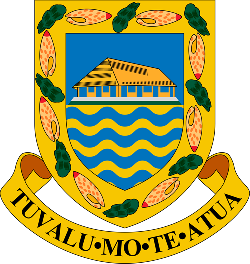Areas of Expertise
Project Status
Filter by project scope:
Project Type
Results
topography, size, geographical remoteness and access to resources. Despite these challenges, it has become a leading voice for enhanced climate mitigation regionally and globally. Tuvalu is now developing a national adaptation planning process (and NAP) that will form a sustainable platform for future adaptation investments.
Status: Current
Climate change is a fundamental cross-cutting issue that undermines Tuvalu socio-economic development efforts. Tuvalu’s climate change priorities are articulated in the recently approved Te Kete Sustainable Development Strategy 2021-2030, national climate change policy, sectoral policies as well as in legislation such as the Tuvalu Climate Change and Disaster Survival Fund Act and Regulations. As indicated in the NDC, Tuvalu commits to a reduction of emissions of greenhouse gases from electricity by 100% by 2025. Emissions will be reduced from all other key sectors including Agriculture and Waste, conditional upon the necessary technology and finance. An updated climate change strategy is currently being prepared.
Objectives Fiscal revenue and impacts on Tuvalu capacity to implement national climate policies and international commitments Food security and development of national agriculture production Fishery and tourism Education Energy and water Infrastructure Disaster Preparedness and Management and resiliency of the health system
Status: Completed
Pacific Adaptation 1 to ClimateChange and Resilience Building (PACRES) aims to ensure better regional and nationaladaptation and mitigation responses to climate change challenges facing Pacific ACP countries.It is being implemented by the Secretariat of the Pacific Regional Environment Programme(SPREP), the Pacific Islands Forum Secretariat, the Pacific Community and theUniversity of the South Pacific.PACRES is supporting regional and national climate change portals to increase access toand reach of climate change and disaster resilience information. This includes contributing toongoing maintenance and support of regional and national knowledge management portals,which are critical to their long-term sustainability.
Status: Completed
